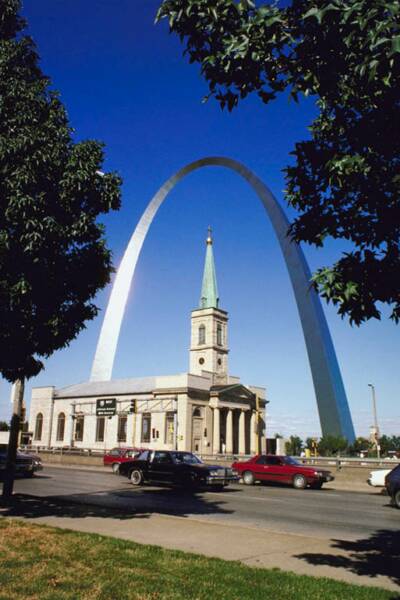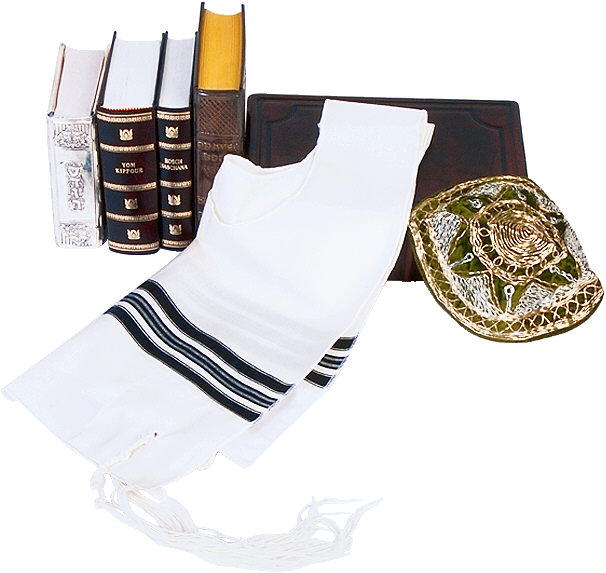
GOD'S SAFE HOUSE MINISTRIES
is full time time street ministry a church without walls. GOD'S SAFE HOUSE is ran out of my home. In 2002 GOD told me to build this ministry from the ground up.
On faith only.
is full time time street ministry a church without walls. GOD'S SAFE HOUSE is ran out of my home. In 2002 GOD told me to build this ministry from the ground up.
On faith only.
GOD'S SAFE HOUSE MINISTRIES is a multi - cultural ministry that thrives on GOD'S ideal of brotherly love.
My name is Terravia Dushona Green, I've been called to the streets; to the hard to reach believers that left the church;
(The difficult people)!
I take time to learn how a person learns
and work from that. No two people are the same.


GOD'S SAFE HOUSE MINISTRIES FOUNDATION VERSES ARE
ISAIAH 40:28-31


''(Except you become as a little child, you shall not enter into the kingdom of heaven).” (Matthew 18:3)
CALLED TO PRAYER 24/7
FASTING
MAKING VOWS & KEEPING THE VOW
GENESIS 9:11-17
GOING TO ALL THE WORLD!
The teaching of this ministry are having a personal relateship with Jesus as your LORD.
Walking in the gifts of the Holy Spirit.


Rainbow [N] [S]
caused by the reflection and refraction of the rays of the sun shining on falling rain. It was appointed as a witness of the divine faithfulness ( Genesis 9:12-17 ). It existed indeed before, but it was then constituted as a sign of the covenant. Others, however (as Delitzsch, Commentary on Pentateuch), think that it "appeared then for the first time in the vault and clouds of heaven." It is argued by those holding this opinion that the atmosphere was differently constituted before the Flood. It is referred to three other times in Scripture ( Ezekiel 1:27 Ezekiel 1:28 ; Revelation 4:1-3 ; 10:1 ).
These dictionary topics are from
M.G. Easton M.A., D.D., Illustrated Bible Dictionary, Third Edition,
published by Thomas Nelson, 1897. Public Domain, copy freely.
--------------------------------------------------------------------------------
[N] indicates this entry was also found in Nave's Topical Bible
[J] indicates this entry was also found in Jack Van Impe's Prophecy Dictionary
[S] indicates this entry was also found in Smith's Bible Dictionary
[N] indicates this entry was also found in Nave's Topical Bible
[J] indicates this entry was also found in Jack Van Impe's Prophecy Dictionary
[S] indicates this entry was also found in Smith's Bible Dictionary
Prayer [N] [T] [B] [S]
is converse with God; the intercourse of the soul with God, not in contemplation or meditation, but in direct address to him. Prayer may be oral or mental, occasional or constant, ejaculatory or formal. It is a "beseeching the Lord" ( Exodus 32:11 ); "pouring out the soul before the Lord" ( 1 Samuel 1:15 ); "praying and crying to heaven" ( 2 Chronicles 32:20 ); "seeking unto God and making supplication" ( Job 8:5 ); "drawing near to God" ( Psalms 73:28 ); "bowing the knees" ( Ephesians 3:14 ).
is converse with God; the intercourse of the soul with God, not in contemplation or meditation, but in direct address to him. Prayer may be oral or mental, occasional or constant, ejaculatory or formal. It is a "beseeching the Lord" ( Exodus 32:11 ); "pouring out the soul before the Lord" ( 1 Samuel 1:15 ); "praying and crying to heaven" ( 2 Chronicles 32:20 ); "seeking unto God and making supplication" ( Job 8:5 ); "drawing near to God" ( Psalms 73:28 ); "bowing the knees" ( Ephesians 3:14 ).
Prayer presupposes a belief in the personality of God, his ability and willingness to hold intercourse with us, his personal control of all things and of all his creatures and all their actions.
Acceptable prayer must be sincere ( Hebrews 10:22 ), offered with reverence and godly fear, with a humble sense of our own insignificance as creatures and of our own unworthiness as sinners, with earnest importunity, and with unhesitating submission to the divine will. Prayer must also be offered in the faith that God is, and is the hearer and answerer of prayer, and that he will fulfil his word, "Ask, and ye shall receive" ( Matthew 7:7 Matthew 7:8 ; 21:22 ; Mark 11:24 ; John 14:13 John 14:14 ), and in the name of Christ ( John 16:23 John 16:24 ; 15:16 ; Ephesians 2:18 ; 5:20 ; Colossians 3:17 ; 1 Peter 2:5 ).
Prayer is of different kinds, secret ( Matthew 6:6 ); social, as family prayers, and in social worship; and public, in the service of the sanctuary.
Intercessory prayer is enjoined ( Numbers 6:23 ; Job 42:8 ; Isaiah 62:6 ; Psalms 122:6 ; 1 Timothy 2:1 ; James 5:14 ), and there are many instances on record of answers having been given to such prayers, e.g., of Abraham ( Genesis 17:18 Genesis 17:20 ; 18:23-32 ; Genesis 20:7 Genesis 20:17 Genesis 20:18 ), of Moses for Pharaoh ( Exodus 8:12 Exodus 8:13 Exodus 8:30 Exodus 8:31 ; Exodus 9:33 ), for the Israelites ( Exodus 17:11 Exodus 17:13 ; Exodus 32:11-14 Exodus 32:31-34 ; Numbers 21:7 Numbers 21:8 ; Deuteronomy 9:18 Deuteronomy 9:19 Deuteronomy 9:25 ), for Miriam ( Numbers 12:13 ), for Aaron ( Deuteronomy 9:20 ), of Samuel ( 1 Samuel 7:5-12 ), of Solomon ( 1 Kings 8 ; 2 Chr. 6 ), Elijah ( 1 Kings 17:20-23 ), Elisha ( 2 Kings 4:33-36 ), Isaiah ( 2 Kings 19 ), ( Jeremiah 42:2-10 ), Peter ( Acts 9:40 ), the church ( 12:5-12 ), Paul ( 28:8 ).
No rules are anywhere in Scripture laid down for the manner of prayer or the attitude to be assumed by the suppliant. There is mention made of kneeling in prayer ( 1 Kings 8:54 ; 2 Chr 6:13 ; Psalms 95:6 ; Isaiah 45:23 ; Luke 22:41 ; Acts 7:60 ; 9:40 ; Ephesians 3:14 , etc.); of bowing and falling prostrate ( Genesis 24:26 Genesis 24:52 ; Exodus 4:31 ; 12:27 ; Matthew 26:39 ; Mark 14:35 , etc.); of spreading out the hands ( 1 Kings 8:22 1 Kings 8:38 1 Kings 8:54 ; Psalms 28:2 ; 63:4 ; 88:9 ; 1 Timothy 2:8 , etc.); and of standing ( 1 Samuel 1:26 ; 1 Kings 8:14 1 Kings 8:55 ; 2 Chr 20:9 ; Mark 11:25 ; Luke 18:11 Luke 18:13 ).
If we except the "Lord's Prayer" ( Matthew 6:9-13 ), which is, however, rather a model or pattern of prayer than a set prayer to be offered up, we have no special form of prayer for general use given us in Scripture.
Prayer is frequently enjoined in Scripture ( Exodus 22:23 Exodus 22:27 ; 1 Kings 3:5 ; 2 Chr 7:14 ; Psalms 37:4 ; Isaiah 55:6 ; Joel 2:32 ; Ezek. 36:37 , etc.), and we have very many testimonies that it has been answered ( Psalms 3:4 ; 4:1 ; 6:8 ; 18:6 ; 28:6 ; 30:2 ; 34:4 ; 118:5 ; James 5:16-18 , etc.).
"Abraham's servant prayed to God, and God directed him to the person who should be wife to his master's son and heir ( Genesis 24:10-20 ).
"Jacob prayed to God, and God inclined the heart of his irritated brother, so that they met in peace and friendship ( Genesis 32:24-30 ; 33:1-4 ).
"Samson prayed to God, and God showed him a well where he quenched his burning thirst, and so lived to judge Israel (Judg. 15:18-20 ).
"David prayed, and God defeated the counsel of Ahithophel ( 2 Samuel 15:31 ; 16:20-23 ; 17:14-23 ).
"Daniel prayed, and God enabled him both to tell Nebuchadnezzar his dream and to give the interpretation of it ( Daniel 2: : 1623 -23).
"Nehemiah prayed, and God inclined the heart of the king of Persia to grant him leave of absence to visit and rebuild Jerusalem ( Nehemiah 1:11 ; 2:1-6 ).
"Esther and Mordecai prayed, and God defeated the purpose of Haman, and saved the Jews from destruction ( Esther 4:15-17 ; Esther 6:7 Esther 6:8 ).
"The believers in Jerusalem prayed, and God opened the prison doors and set Peter at liberty, when Herod had resolved upon his death ( Acts 12:1-12 ).
"Paul prayed that the thorn in the flesh might be removed, and his prayer brought a large increase of spiritual strength, while the thorn perhaps remained ( 2 Corinthians 12:7-10 ).
"Prayer is like the dove that Noah sent forth, which blessed him not only when it returned with an olive-leaf in its mouth, but when it never returned at all.", Robinson's Job.
These dictionary topics are from
M.G. Easton M.A., D.D., Illustrated Bible Dictionary, Third Edition,
published by Thomas Nelson, 1897. Public Domain, copy freely.
--------------------------------------------------------------------------------
[N] indicates this entry was also found in Nave's Topical Bible
[T] indicates this entry was also found in Torrey's Topical Textbook
[B] indicates this entry was also found in Baker's Evangelical Dictionary
[S] indicates this entry was also found in Smith's Bible Dictionary
[N] indicates this entry was also found in Nave's Topical Bible
[T] indicates this entry was also found in Torrey's Topical Textbook
[B] indicates this entry was also found in Baker's Evangelical Dictionary
[S] indicates this entry was also found in Smith's Bible Dictionary





New Birth
Cleansing from sin that God gives to all who believe on his Son through the Holy Spirit.
Cleansing from sin that God gives to all who believe on his Son through the Holy Spirit.
It is absolutely necessary for a person to be born again in order to enter the kingdom of God. In the central passage in the New Testament about the new birth ( John 3 ), Jesus tells Nicodemus, a member of the Jewish ruling council, that he will not enter the kingdom of God unless he is born anew. The alternation between singular and plural Greek pronouns in the passage shows that Jesus is speaking to Nicodemus both personally and representatively. The need for the new birth is not only true of Nicodemus, but of the entire Sanhedrin, all Jews, and, by extension, all people.
Some have considered the new birth to be a process a person experiences, even over a period of years. Such an interpretation is not congruent with the tense of the Greek verb in this passage. The aorist tense suggests that the new birth is an event rather than a process. Prior to a certain point in time, a person is not-born-again or regenerated; after that point, the person is.
Probably the most difficult interpretative issue in John 3 is found in verse 5. The best view appears to be that "being born of water and the Spirit" presents a unified thought for the supernatural cleansing from sin that God through the Spirit effects on all who believe on his Son. This water-Spirit combination is a reflection of Ezekiel 11, 36, and Jeremiah 31. In these Old Testament passages God's Spirit is viewed as doing a revolutionary work in the lives of God's people in the new covenant age. There are a number of reasons that this interpretation is preferable.
The use of one Greek preposition (ek) before the two nouns indicates a close relationship between them. Water and Spirit are complementary rather than antithetical to each other. It does not see water as a reference to Christian baptism at a time in Jesus' ministry when such baptism was not yet a historical reality. It fits well contextually in terms of Nicodemus' familiarity with the Old Testament and the need for some intelligibility on his part. It interprets "born of water and the Spirit" as equivalent to "born of God, " a common Johannine term ( John 1:13 ; 1 John 2:29 ; 3:7-10 ; 4:7 ; 5:4 ). It comports well with the emphasis on Spirit and truth in the Johannine literature. Finally, it coheres with the use of water in the Old Testament to symbolize renewal and cleansing.
Whether Old Testament believers possessed the new birth is a difficult question. No Old Testament text explicitly states that Old Testament believers were born again or regenerated. There is a relative absence of a developed theology of the Spirit in the Old Testament. But, given the universality of the need for the new birth, it can be argued that Jesus' teaching on the absolute necessity of the new birth for entrance into the kingdom of God analogically demands that Old Testament believers also had to have the divine life imparted to them through God's Spirit.
Many commentators argue that tit 3:5 argues for water baptism as the referent of the word "washing." Based on the Greek grammar, however, the translation should be rendered "the washing [produced by] regeneration and the renewal [produced by] the Holy Spirit." This interpretation also coheres with the translation of John 3.
First Peter 1:23 adds a more explicit dimension to the means whereby the new birth is produced: the preached message of the truth of Jesus Christ. The key words in 1 Peter 1:22-25 expand upon and reinforce words referring to the new birth.
The new birth is, then, a sovereign act of God by his Spirit in which the believer is cleansed from sin and given spiritual birth into God's household. It renews the believer's intellect, sensibility, and will to enable that person to enter the kingdom of God and to do good works. The Old Testament saints were born again when they responded in faith to God's revealed message; New Testament saints, when they respond in faith to Jesus Christ.
Carl B. Hoch, Jr.
Bibliography. L. L. Belleville, Trinity 1 (1980): 125-41; F. Bchsel, TDNT, 1:665-75, 686-89; S. Charnock, The Works of Stephen Charnock, vol. 3; J. Dey, Encyclopedia of Biblical Theology, pp. 725-30; N. R. Gulley, ABD, 5:659-60; Z. C. Hodges, BSac 135 (1978): 206-20; A. Kretzer, Exegetical Dictionary of the New Testament, 1:243-44; W. L. Kynes, Dictionary of Jesus and the Gospels, pp. 574-76; J. I. Packer, EDT, pp. 924-26; A. Ringwald, NIDNTT, 1:176-80; P. Toon, Born Again: A Biblical and Theological Study of Regeneration
Holy Ghost the third Person of the adorable Trinity.
His personality is proved (1) from the fact that the attributes of personality, as intelligence and volition, are ascribed to him ( John 14:17 John 14:26 ; 15:26 ; 1 Corinthians 2:10 1 Corinthians 2:11 ; 12:11 ). He reproves, helps, glorifies, intercedes ( John 16:7-13 ; Romans 8:26 ). (2) He executes the offices peculiar only to a person. The very nature of these offices involves personal distinction ( Luke 12:12 ; Acts 5:32 ; 15:28 ; 16:6 ; 28:25 ; 1 Corinthians 2:13 ; Hebrews 2:4 ; 3:7 ; 2 Pet 1:21 ).
His divinity is established (1) from the fact that the names of God are ascribed to him ( Exodus 17:7 ; Psalms 95:7 ; Compare Hebrews 3:7-11 ); and (2) that divine attributes are also ascribed to him, omnipresence ( Psalms 139:7 ; Ephesians 2:17 Ephesians 2:18 ; 1 Corinthians 12:13 ); omniscience ( 1 Corinthians 2:10 1 Corinthians 2:11 ); omnipotence ( Luke 1:35 ; Romans 8:11 ); eternity ( Hebrews 9:4 ). (3) Creation is ascribed to him ( Genesis 1:2 ; Job 26:13 ; Psalms 104:30 ), and the working of miracles ( Matthew 12:28 ; 1 Corinthians 12:9-11 ). (4) Worship is required and ascribed to him ( Isaiah 6:3 ; Acts 28:25 ; Romans 9:1 ; Revelation 1:4 ; Matthew 28:19 ).
These dictionary topics are from
M.G. Easton M.A., D.D., Illustrated Bible Dictionary, Third Edition,
published by Thomas Nelson, 1897. Public Domain, copy freely.
